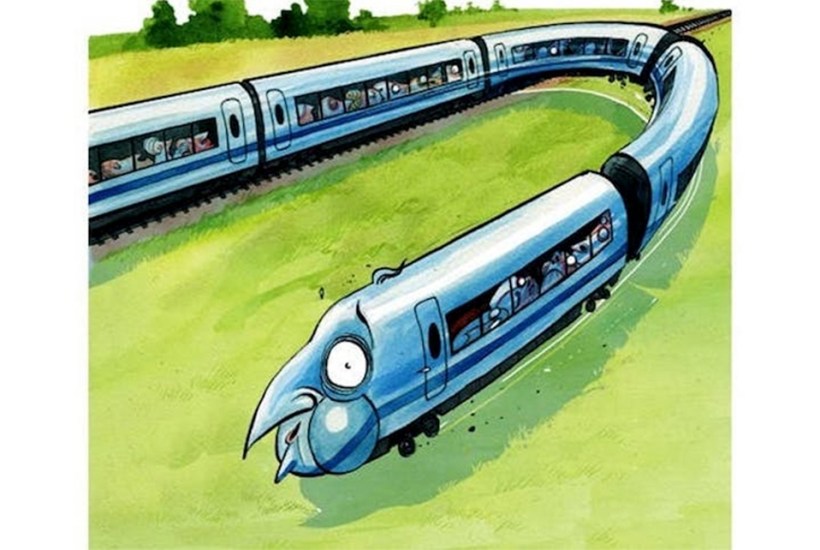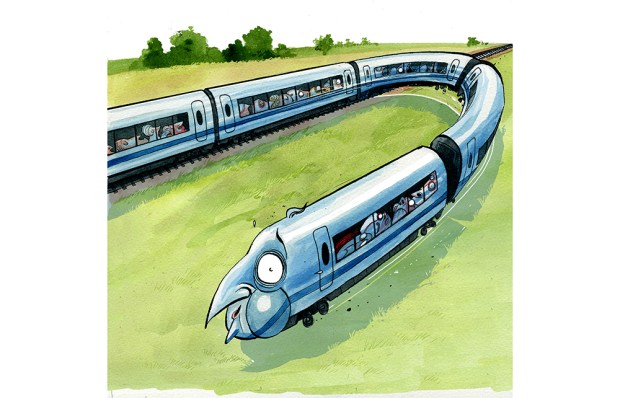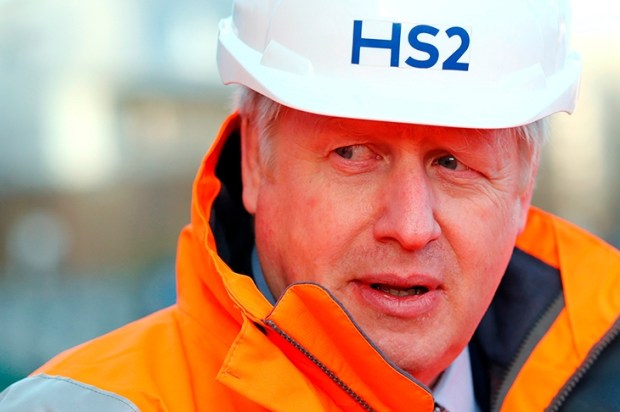I have two suggestions for HS2. Either stop it or make it stop. The spiralling cost and delays are reason enough to rethink the project, never mind the changes to patterns of rail use since 2021. Any economic case based on pre–pandemic projections needs to be revisited. So one option would be to stop the project completely.
But what if the project goes ahead in a reduced form to save face? Well, in this case, the need for speed is questionable. The value of speed to passengers is far from linear. For instance, cutting a journey time from four hours to two, as the TGV did between Paris and Lyon, is a game-changer. Reducing a journey from 80 minutes to 40, on the other hand, isn’t that big a deal.
If, as we are repeatedly told, the case for HS2 is capacity, not speed, we have to ask whether a rather slower but more luxurious version of the train might make more sense. This would be cheaper, and the line could be curvier. But it also avoids an obvious weakness of ultra-fast trains. Slower trains can afford to stop en route. Hence if we can’t stop HS2 we should at least make it stop.
Throughout France, there are towns which naively campaigned for high-speed lines to run nearby, on the assumption that their town would get a TGV station. Too late they discovered that while they got the trains, a station was another matter. The nearest TGV station ended up 70 miles away. For all kinds of reasons, not least physics, ultra-fast rail does not allow for frequent stopping.
This quest for speed therefore obviates one of the principal advantages of rail – which is that a railway, like a road, can benefit communities along its length, not only at the ends. It always struck me as dumb that there was no parkway station for HS2 near the M25 – the equivalent of the hugely successful Ebbsfleet station built for HS1. And in the same way, a slower HS2 could also stop at Stockport, which is where the richer denizens of Manchester currently board the train to London. I also have some sympathy for the Chilternites who, like their French counterparts, must put up with trains barrelling past their homes without any means of boarding them.
You could even create entirely new stations in the middle of nowhere along the HS2 route and then use the resulting rise in property values to pay for the railway. Thirty-thousand acres of agricultural land would cost perhaps £90 million. The same acreage with a 35-minute journey time to London or Birmingham, plus planning permission and the promise of a Waitrose, would be worth £25 billion. Do that three times and you have a free railway – funded not by taxpayers but by the people who use it.
The UK wants to disperse wealth and to create more housing. An HS2 with more frequent stops could do both. One way to silence Nimbys is to stop building in people’s backyards – creating entirely new towns instead. Swindon, Crewe and Derby – and, more exotically, Chicago, Denver, Atlanta and Los Angeles – owe most of their growth to rail connections.
And are railways all that great? Pinkos seem to love mass transit and hate cars. But the problem with mass transit is that such modes of transport operate on a hub and spoke system, which necessarily concentrates added value at the hubs and nodes. By contrast the car, the taxi and the van, which move independently, are almost certainly far better at creating and dispersing wealth and employment to people over a wide area, rather than enriching city-centre landowners.
We assume that the postwar US had a lot of cars because it was rich. But the reverse is also true: it became rich because it had a lot of cars. If we really wanted to boost the economy, HS2 would be a road.
Got something to add? Join the discussion and comment below.
Get 10 issues for just $10
Subscribe to The Spectator Australia today for the next 10 magazine issues, plus full online access, for just $10.
You might disagree with half of it, but you’ll enjoy reading all of it. Try your first month for free, then just $2 a week for the remainder of your first year.















Comments
Don't miss out
Join the conversation with other Spectator Australia readers. Subscribe to leave a comment.
SUBSCRIBEAlready a subscriber? Log in